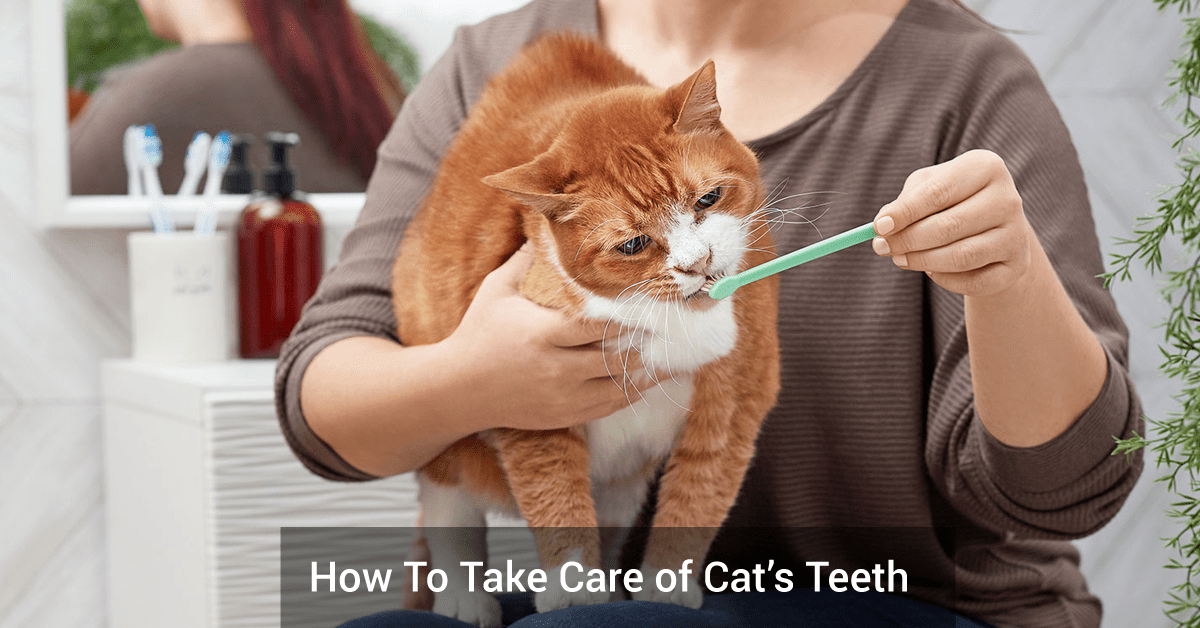Cats often suffer from dental or oral problems that they do not complain about. Therefore, this account mentions the guidelines and tips you can follow to heal such issues in your pet cats to keep them healthy and happy.
Teeth are essential parts of any being’s body, and one needs to take special care of these as adult teeth do not regrow once damaged or broken. Of course, you can maintain your oral hygiene, but your pet cat’s dental care lies completely in your hands.
Below, you will find some helpful points to use as a reference regarding taking care of your pet cat’s teeth and oral hygiene. We have covered all the required details that you can easily follow for your convenience.
Brushing Routine
It would help if you brushed your cat’s teeth regularly to avoid the deposition of food items between their teeth.
- If you have a kitten, you should start making them habituated with brushing as soon as possible. This is because, as your cat gets older, he is likely to resist this process. Early habits of brushing will eliminate this resistance in the future.
- It would help if you always used toothbrushes and toothpaste made especially for cats. Never use human toothpaste for cats. They will swallow the toothpaste, and, as our toothpaste contains fluoride, its ingestion can cause critical disorders in cats.
- When brushing your pet cat’s teeth, you should also massage their gums to keep them healthy. Always notice the condition of their gums while doing this task. If you find your cat’s gums are reddish or swollen, you should pay special attention to their dental care.
- Nowadays, you can get flavoured toothpaste for your cats so that they can enjoy their brushing experience. Using these types of toothpaste, usually with the essences of malt or meat, your cat will be less resistant to brushing or swallowing the toothpaste foam.
- You can expect your pet cat to bite you accidentally while you try to brush their teeth. So do not haste in this process, and you should patiently and lovingly try each day, gradually increasing the span of the dental area.
Proper Diet
Quite similar to us, your cat’s oral health and hygiene largely depend on the food they eat.
- You should get a diet chart from the veterinarian, including healthy food items for your cat’s teeth. You should also not feed your cats too sweet substances as these develop plaque and diminish the health of your pet cat’s teeth.
- Cats cannot rinse their mouths like we do to keep our buccal cavities clean. Therefore, they should drink plenty of water to get rid of the remnants after having meals. This is important as stuck food items can cause a bacterial infection called gingivitis.
- You should offer your cats treats that control the level of tartar in their teeth. You may even appreciate their cooperation during brushing and give them these items after the brushing session.
Correct Choice of Toys
Chew toys are the favourite playthings for all pets, but you should be cautious of the below points.
- A common mistake pet parents make is that they think all chew toys enhance your cat’s dental health. Instead, you should keep the hardness of your fingernail as a benchmark, and if the chew toy is harder than that, it is not safe for your cat to play with.
- As your pet cats do not hunt on mice or other prey, they miss out on the natural dental exercise of chewing on bones. Therefore, you should offer them such toys to stimulate their teeth functioning.
Being Proactive
As pet parents, you should not wait for your pet to give you signals of discomfort. This is an even more dicey situation for cats, as they are experts in hiding their pain or physical issues.
- If you are not alert or observant about your cat’s dental health, you may not notice their pain, irritation, and uneasiness.
- You should regularly check your cat’s buccal cavity and take immediate action on spotting abnormalities like swollen gums or bad breath. Your cat’s mouth has a particular smell, and you should be well informed to tell the difference between a healthy and foul smell.
- If you find your cat’s gums are bleeding once in a while, it is normal. On the other hand, if the bleeding does not cease, you should consult the doctor.
- Drooling is never a normal sign, and if your adorable pet drools, it is a matter of medical attention.
Regular Visits to Doctor
You should take your pet cats for regular check-ups, including their dental examination. You may not comprehend the distress your cat is facing due to irritation or toothaches, and the vet can detect the underlying issues that your pet is undergoing. During these visits, you should clear all your queries regarding the correct dental diet, tools, and other information about your cat’s teeth.
Conclusion
We hope that the above guidelines will make it easier for you to keep your pet cat’s teeth healthy and hygienic. However, you should never take the non-complaining nature of your cats for granted and instead be proactive to maintain their oral fitness.

